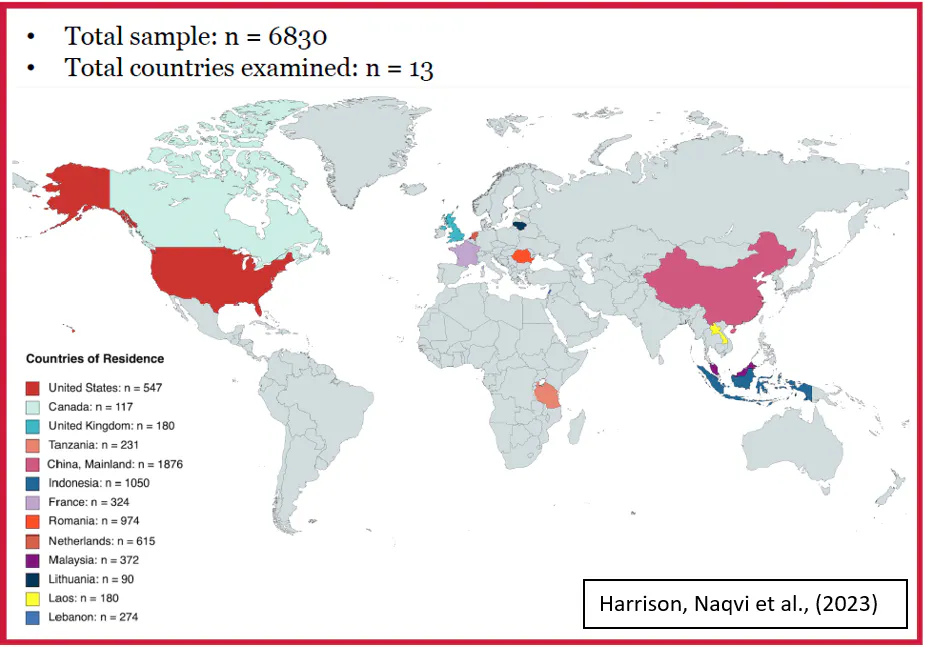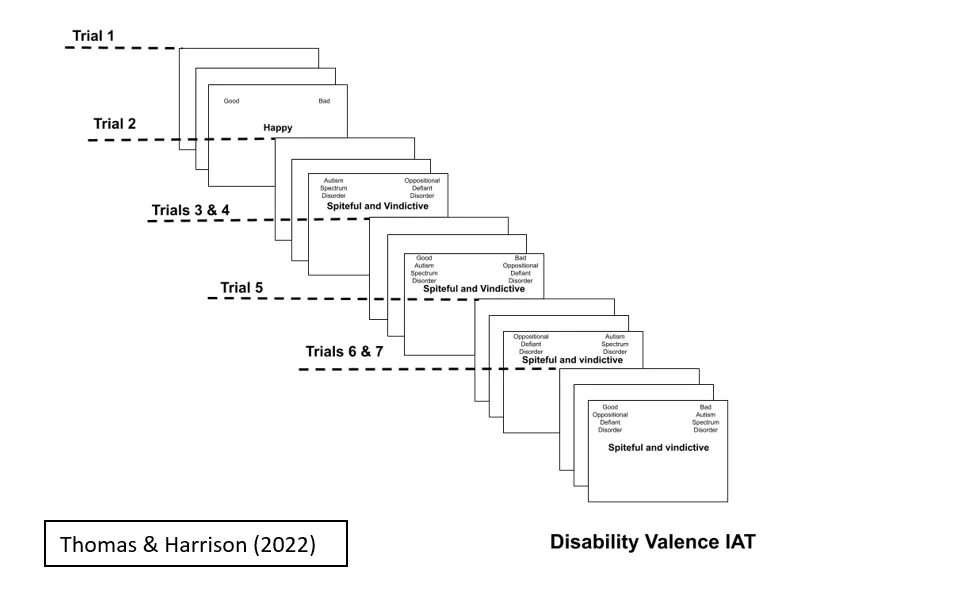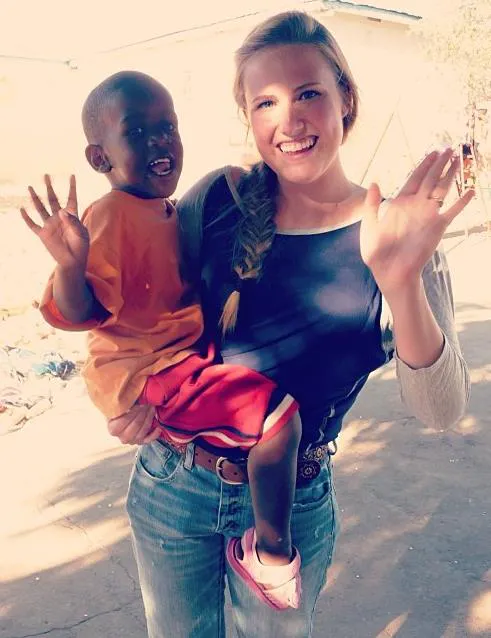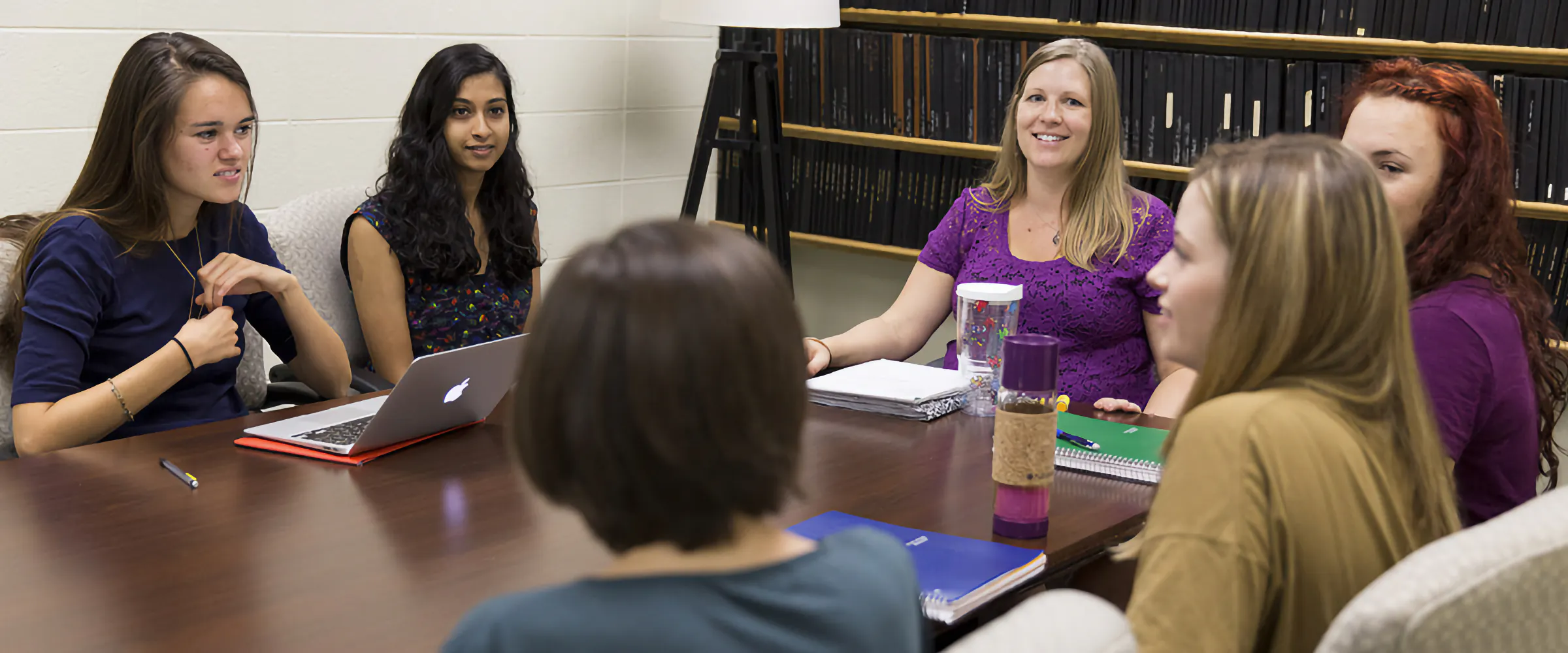Child Attention and Autism Research and Evaluation (CAARE) Lab

The CAARE Lab conducts research to help grow autism knowledge and reduce stigma to promote a better quality of life for autistic individuals worldwide. We are interested in diminishing the disparities experienced by underserved families and increasing the quality of support for neurodiverse young adults in our community.
Current Studies
Assessing ASD Knowledge

- Developed a measure of ASD knowledge entitled, the Autism Stigma & Knowledge Questionnaire (ASK-Q) in cross-cultural contexts
- Assessing ASD knowledge or stigmas of ASD in low- and middle-income countries
Researchers
- Harrison, A.J., Naqvi, N, Smit, A.K., Nanda Kumar, P., Muhammed, N.A, Saade, S., Yu, L., Cappe, E., Low, H.M., Y de Bildt, A. (2023). Assessing Autism Knowledge and Stigma across the Global Landscape Using the ASK-Q. Journal of Autism and Developmental Disorders. Online.
- Harrison, A.J., Bradshaw, L.P. Naqvi, N., Paff, M.L._, & Campbell, J.M. (2017). Development and Psychometric Evaluation of the Autism Stigma and Knowledge Questionnaire (ASK-Q). Journal of Autism and Developmental Disorders, 47(10), 3281-3295. DOI: 10.1007/s10803-017-3242-x
- Harrison, A.J, Slane. M.M., Hoang, L., & Campbell, J.M. (2017). An International Review of Autism Knowledge Assessment Measures. Autism: The International Journal of Research and Practice. Advance online publication, 21(3) 262-275. DOI: 10.1177/1362361316638786
Assessing Autism Stigma

- Using implicit and explicit measures to examine autism stigmas and the negative impact
- Examining the experience and consequences of stigma among autistic adult
Researchers
- Obeid, R., Bisson, J., B., Cosenza, A., Harrison, A.J., James, F., Saade, S., & Gillespie-Lynch, K. (2021). Do implicit and explicit racial biases influence autism identification and stigma? An implicit association test study. Journal of Autism and Developmental Disorders, 51(1), 106-128. https://doi.org/10.1007/s10803-020-04507-2 ](https://doi.org/10.1007/s10803-020-04507-2 ) . _Shared first authorship.
- Thomas, G._, & Harrison, A.J. (May, 2022). Examining the Psychometric Properties of an Implicit Association Test Used to Identify Potential Biases in Autism Identification. Poster presented at the virtual INSAR Annual Meeting.
- Marion, A., Karrah Bowman, K.L., Thomas, G., & Harrison. A.J. (2023). A mixed method examination: How stigma experienced by autistic adults relates to metrics of social identity and social functioning. Frontiers Psychiatry. Online.
Examining Service Use Disparities
- Identifying factors (individual, interpersonal and community) that contribute to an underutilization of Early Childhood Learning Services (Early Intervention and Early Childhood Special Education) in local schools.
- Assessing factors that contribute to disparities in ASD assessment and treatment services
Researchers
- Harrison, A.J., Long, K.A., Tommet, D.C., & Jones, R.N. (2017). Examining the role of race, ethnicity, and gender on social and behavioral ratings within the Autism Diagnostic Observation Schedule. Journal of Autism and Developmental Disorders, 47(9), 2770-2782
- Harrison, A.J., Bhimani, S.K., Allen, F.E., Lieberman-Betz, R., & Neuharth-Pritchett, S. (2023). Identifying Factors Related to Successful Enrollment in Early Intervention and Early Childhood Special Education. Early Childhood Education Journal. Online. https://doi.org/10.1007/s10643-023-01535-2 ](https://doi.org/10.1007/s10643-023-01535-2 )
Developing and implementing interventions and assessment approaches to promote the use of evidence-based and reduce disparities
- Developing innovative interventions for teachers to help increase autism knowledge and the use of evidence-based practices across the global landscape.
- Implementing interventions among non-English-speaking parents and teachers to help increase knowledge of behavior modification strategies that can be used to improve child functional outcomes using verbal didactics, pictorial handouts, interpreters, and strategy modeling. Assessing the efficacy of these interventions using the ASK-Q.
Researchers
- Saade, S., Bockstal-Fieulaine, B., Gillespie-Lynch, K., Besche, C., Boujut, E., Harrison, A.J., & Cappe, E. (2023). Evaluation of an Autism Training in a Much Needed Context - The Case of France. Autism in Adulthood. Online.
- Gillespie-Lynch, K., Bisson, J., Saade, S., Obeid, R., Kofner, B., Harrison, A.J., Daou, N., Tricarico, N.; Delos Santos, J., Pinkava, W., & Jordan, A. (2022). If You Want to Develop an Effective Autism Training, Ask Autistic Students to Help You. Autism, 26(5), 1082-1094.
- Harrison, A., Long, K.A., Manji, K.P. & Blane, K.K. (2016). Development of a brief behavioral intervention for parents of children with autism spectrum disorders in Tanzania. Intellectual and Developmental Disabilities, 54(3), 187-201. doi: http://dx.doi.org/10.1352/1934-9556-54.3.187 ](http://dx.doi.org/10.1352/1934-9556-54.3.187 ) .
Participate in Research
We are conducting a study to gain diverse perspectives about an internationally used screener for developmental disabilities. This research is designed to better understand the need for cultural adaptation in the use of developmental screeners.
The University of Maryland at College Park’s Autism, Family, Culture, and Communication Education Lab (ACCEL; PI: Dr. Veronica Kang) is seeking parents of individuals with or without a developmental disability to participate in a study that examines their perspectives on inclusive education and neurodiversity.
Autism Clinical Services at UGA
School Psychology Clinic
The School Psychology Clinic in the College of Education provides comprehensive autism spectrum disorder diagnostic evaluations as well as psychoeducational evaluations.
Learn More About Our Evaluations
UGA students and adults with ASD can find several groups (peer support and social and life skills) during Fall and Spring semesters every year as part of UGA RISE, an initiative of the UGA CAARE Lab in partnership with the UGA Disability Resource Center. Please email us to find out when and where our groups meet and with any questions.
UGA RISE
Peer Support Group
The peer support group serves as a weekly opportunity where individuals with autism can express their concerns to other adults on the autism spectrum. In this group, we discuss topics that are of needs and/or interest to the group members. Topics have included communication, relationships and dating, time management, self-esteem, disclosure, social nuances, and dealing with stress. Email drcgrad@uga.edu) for more information about the group.
Campus Coaches
Campus Coaches is a part of UGA Resources Inspiring Student Excellence (UGA RISE) initiative. Campus Coaches pairs a UGA student with ASD with a veteran UGA student who will assist their peers on activities such as navigating campus areas, navigating public transportation, social skill advancement (e.g., communicating with friends and professors) or just to meet occasionally for coffee or a slice of pizza. Any interested UGA undergraduate students with a diagnosis of autism spectrum disorder can participate. To learn more or sign up for the program, please send an email with the following information:
- What kind of help are you looking for?
- What is the best way to contact you (email or phone or text)?
More Information
School Psychology Clinic
706-542-4265
Email: scpsycl@uga.edu
Peer Support Group & Campus Coaches
Email: caarelab@uga.edu
We have assembled a list of professionals in the Athens area that provide services such as ABA services, diagnostic services, and other therapy services.
View a list of Child resources (PDF)
View a list of Adult resources (PDF)
Ashley Johnson Harrison is the lab director and Assistant Professor in the Department of Educational Psychology (School Psychology).
In Loving Memory
Brianna Cochran
November 30, 1994 – March 25, 2015

Brianna was an undergrad research assistant in the CAARE lab. She loved working with kids and planned to be a pediatric surgeon. She enjoyed traveling and learning about the world. Brianna was truly a lovely young woman, inside and out. Her vibrancy, kindness, and extraordinary gift for making others feel special will be something that we will miss every day.
